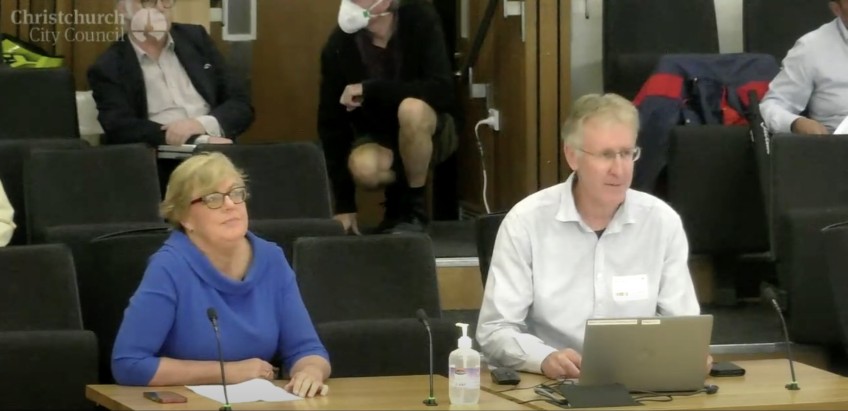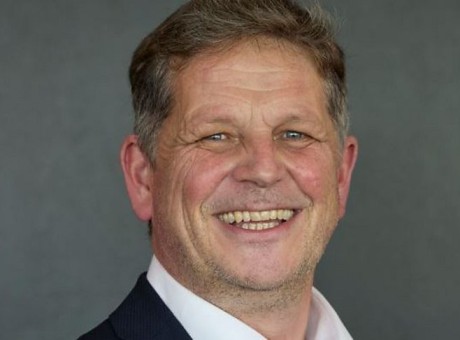Academics make Tarras opposition plea to Christchurch council

A group of leading academics today challenged Christchurch City Council to drop their involvement in the building of a new international airport at Tarras.
$45 million has gone into the purchase of Tarras airport land and three of the eleven members of the Informed Leaders group - comprised of Kiwi academics in opposition of the airport - urged the council not to invest any more in today's public forum council presentation.
"Whichever way you look at it, what is proposed here is a new international airport. CIAL (Christchurch International Airport Ltd) has already confirmed a 2.2km runway… given the available science - right now, and there is plenty of it - we are able to say that proceeding with this proposal is a very bad idea," the group told councillors.
In today's presentation, Distinguished Professor James Higham, professor of sustainable tourism at the University of Otago says the Tarras Airport proposal was fundamentally at odds with the tourism renewal strategies and policies that had been developed for New Zealand to promote sustainable tourism in the wake of Covid-19.

James Higham of Otago University says the decarbonisation of aviation is a long way off.
The technical challenges in decarbonising aviation are "absolutely enormous" Professor Higham says, and reducing current emissions was not possible without controlled management of demand, which cannot be seen in the Tarras proposal.
Professor Higham noted that the aviation industry’s progress to develop sustainable technological solutions is still a long way off. He noted that such proposals follow a predictable pattern.
“Analysis of industry promises reveals that many of the proposed sustainable technology solutions are announced and then hyped in the media only to subsequently fail and disappear.”
“Decarbonising air transportation is by far the greatest technical challenge this industry has ever confronted. Despite promises of zero carbon, aviation progress is very very slow.”
Aviation emissions are continuing to grow, not shrink, Professor Higham says.
Professor Higham noted that such decisions – like building a new airport – were unwise of the face of New Zealand’s climate crisis, drawing attention to this week’s severe weather events in the North Island as direct consequences of climate change.
Fellow presenter and Professor of Political Science and International Relations at the University of Canterbury, Bronwyn Hayward says Cyclone Gabrielle isn’t the first event of tis type and the effects have been felt in the South Island, noting the West Coast’s frequent flooding and Canterbury’s droughts and fires.

Bronwyn Hayward of University of Canterbury notes that the South Island is experiencing natural disasters as result of climate change.
“Tarras will become an increasingly unpopular and polarising political decision. Public attitudes are already hardening around climate change.”
During the presentation, Ms Hayward outlined it would be more sustainable to build on pre-existing aviation infrastructure than to build a new airport – as well as using overseas strategies for emission reduction.
“France, for example, has banned all air travel now between cities for shorter than three-hour periods where you could drive,” Ms Hayward says.
Illan Noy, Associate Professor of Economics at Victoria University spoke of the economic concerns, and that Christchurch ratepayers will lose out whether or not the Tarras airport succeeds.

Ilan Noy of Victoria University says Christchurch ratepayers will lose out.
If the airport is a successful economic investment Christchurch businesses and services won’t reap the results, Mr Noy says because the airport will drive business and tourism out of the district, benefitting Central and wider Otago businesses instead.
“If Tarras fails, which I think is by far the most likely outcome, the owners of CIAL, the citizens of Christchurch, will lose a lot of money."
He noted since the Christchurch earthquakes, the construction industry was the "main driving force for the good economic performance", now that this is winding down, the district needs to look for something else to drive the economy. Mr Noy says an airport in Tarras isn't the answer.
The Informed Leaders group was invited to address Christchurch City Councillors in today’s ordinary meeting, February 15, after they wrote an open letter to leaders on January 24, 2023.
The letter was written by 11 leading New Zealand professors – it’s since been supported by another 34 New Zealand and international academics – you can read more about the letter in Crux’s earlier coverage.
As Professor Higham noted in the presentation, their aim is for decision-makers to be fully informed about the airport and its effects on climate change.
“The responsibility you bear around Christchurch Airport’s plans - directly or indirectly - is significant. Please be an informed leader as you guide the airport company via the Statement of Expectations and associated mechanisms. These decisions affect all New Zealanders now, and for generations to come.”
“We believe that decisions that carry significant and long-term consequences should be fully informed by rigorous science.”
They also announced the plan to soon publish a full index of independent New Zealand-based and international research, to help decision-makers to be informed.
Christchurch International Airport Ltd has issued a formal statement in reply to the points made by the academics.
“Central Otago is one of New Zealand’s fastest growing regions and will be impacted by a shortfall of aviation infrastructure and noted the industry would be a critical driver of the area’s social and economic wellbeing.”
The airport statement says “ample evidence exists” of sustainable infrastructure and listed their other successes in aviation.
Christchurch Airport has reached the highest level of decarbonisation in the world under the Airports Council International’s carbon accreditation programme, and the first airport in the world to reach that level, the reply says.
The letter also drew attention to Kōwhai Park, saying the 400ha renewable energy precinct is designed to provide green energy for electric and hydrogen aircrafts.
“The wider aviation sector is acutely aware of the need to decarbonise. There is a global effort underway to do so. We agree there is a real need to have the right policy settings in place to achieve that ambition.”
“Christchurch Airport does not presume to have all the answers and it does not underestimate the scale of the task ahead. We strongly believe the best way to tackle these problems is by taking a proactive approach to exploring how New Zealand ensures regions, now and in the future, can benefit from having the right infrastructure in place. That will require collaboration and the development of new ideas and approaches.”
Main Image: Bronwyn Hayward and James Higham presenting to Christchurch City Council in today's presentation.

























